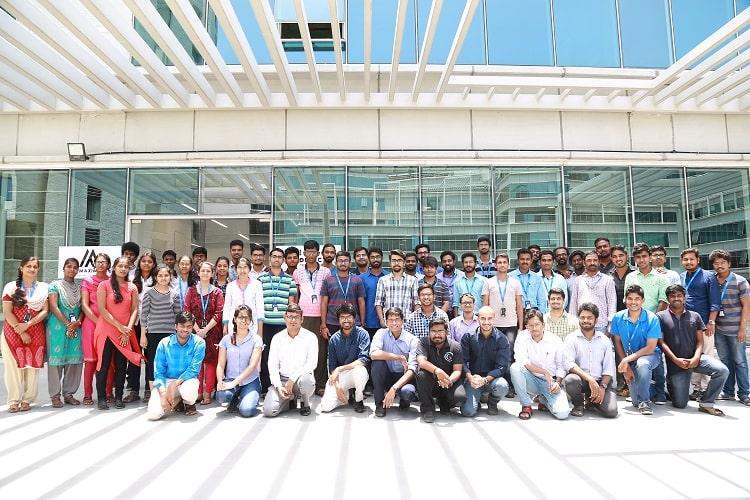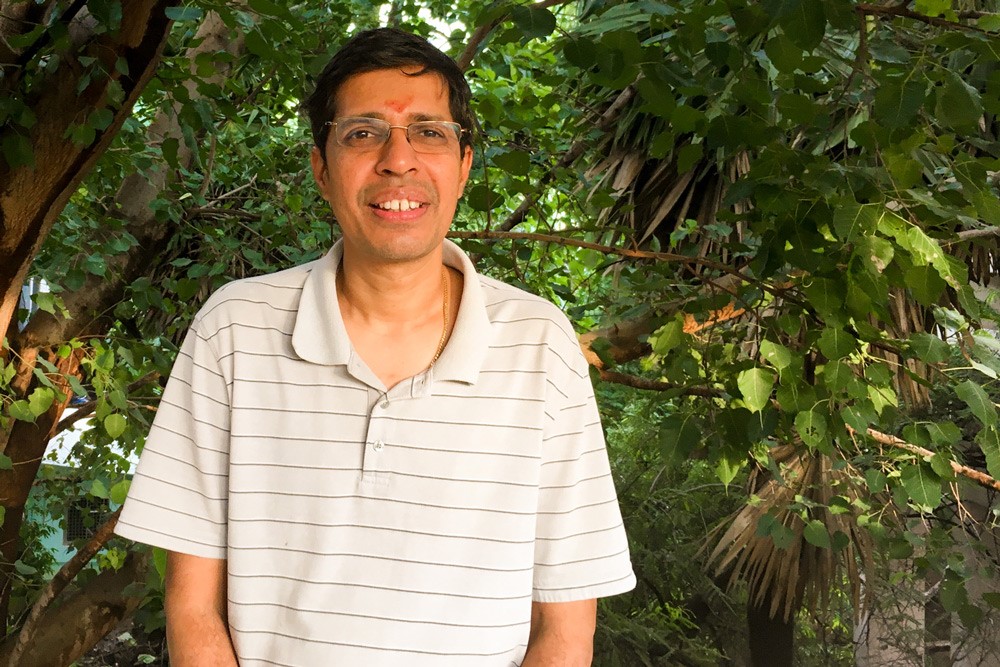By Akshyah Kumar and Isha Bhallamudi
They are the inconspicuous cogs that keep the IIT-M machine well-oiled and running. Without them, insti would be a much poorer place. Yet, too often, we don’t notice them, or acknowledge their role in insti life. Given their unique vantage point, they have stories to tell – stories that give us a different perspective. We believe those are stories worth hearing and worth telling. Because, after all, stories are what make us human.
(You can find all the articles in this series here.)
***
We walked down to the hospital slightly late at night to speak to the head nurse, hoping to find her relatively free, unlike during the day. The nurse on duty asked us to come back in the morning, but the same story repeated itself the next day. As we walked out, we noticed a man sitting at the entrance next to the hospital ambulance. We wondered who he was. We exchanged tentative smiles. We stopped and struck up a conversation, and were stunned to find that not only had he given up a more lucrative government job in order to work with the insti hospital as an ambulance driver to help people (that too, after overcoming a fear of blood to do so), but that in his 18 years as an ambulance driver in this campus, not one person — the patients, families, friends, policemen — had ever even asked him his name.
Ismael was too shy to be recorded, but here are some parts of our conversation with him.
My name is Ismael. I come from a village near Kanchipuram. I have been working in IIT for 16 years now. I am the ambulance driver. Before working in IIT, I used to drive for an ambulance service in the city called trauma care. I joined them in 1996. I used to faint at the sight of blood. But over the years, I have got used to it. I have to, to be able to do my job. We do not pick up dead bodies — police investigation and all, you see. I only have to take wounded people to the hospital.
I came to IIT in 1998 and have been here ever since. I come at eight in the morning and leave at eight in the night. If my co-driver is on leave, I also do the night shift. He is my senior by two years and I have worked with him for a long time. It is okay for me because I do not have children and I live near the campus only.
In 2007, the Government of Tamil Nadu introduced that 108 ambulance service. So the trauma care service went down. Earlier we were around 70 to 100 people working for trauma care, which was a privately run service. Now there are only ten people or so. In IIT, there are two drivers and two paramedics. That’s all. Just four people.
The students here are nice and cooperative, even though I don’t know anything but Tamil and most of them speak English. I am usually called up for minor cycle accident cases, where the students often need stitches from falling down, on suddenly encountering a deer on the road. The new students fall ill more often because of the new water and climate. How the campus has changed in all this time? Well, I don’t know about that. It seems mostly the same. But one thing is, the student population has increased a lot. There are many more students now.
I am telling you, since 1996, I have seen many accidents and I have helped many people, but I did not join this job hoping for recognition or anything. When any accidents happen and we help, people are very nice to us including policemen but that’s all. In my entire service here as an ambulance driver, no one has stopped and asked me why I do what I do or have wanted to know more about me to write about me. Someone asking me what I have been doing here for so long in itself makes me very happy. Not because of advertisement or anything. But because you have seen me after sixteen years, I am very happy. Thank you very much.




